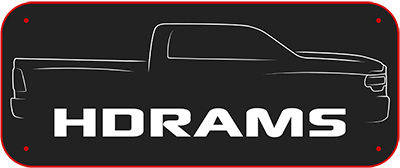... sorry about carrying on this tangent a bit more, but just have to jump in with an important FYI on braking with engine out... the braking system in our pickups is a vacuum over hydraulic, which means that immediately after an engine off, you still have full vacuum pressure in the system.
How does that relate to an emergency situation? Immediately after engine out, pick a target on the side of the road, then remember you have ONE shot at using your brakes with full pressure. As long as you don't ease up on your brakes they will stay applied with the pressure you've applied, just like they always do. So, don't touch the brakes, pick your spot, start manoeuvring over to it, then apply moderate brake pressure that will allow you to stop in your targeted area. DON'T PUMP THE BRAKES!!! Think about applying the pressure you need and hold it there. If you let up even a bit, you won't get that pressure back later. Press and hold until coming to a complete stop will be just as easy as if the engine were still running. (and yes the trailer brakes are electric, so even if you did it wrong and lost power assist on your pickup, you can manually add trailer brakes)
The worst/wrong thing to do is to immediately stab the brakes then letup while you check around to find your targeted stop area; yet that is often the first instinct. You will have likely done little to bleed off speed at that point, but you will have used up most, if not all, of your vacuum pressure boost, so that when you really do want to slow to a stop you will be standing on a brick with very little stopping force.
If it sounds like I've been there, done that, it's because I have, several times, when I was young and in the trucking business. Our fleet ran the gamut from 18-30 wheelers with diesel and air brakes, but also much less reliable 3 tons with gas and hydraulic brakes. Trucks back in the 80s were not built nearly as reliably as they are now, and some of our fleet were from the 60s and 70s. Engine out happened for lots of reasons, including overheating, throwing a rod or piston, fuel vapor locks, etc. We lived through it. I will admit though that all of the commercial trucks have a big advantage of steering without power - the wheels are much larger, they are in a more vertical position, and the turning ratios are typically much larger so the leverage of the wheel to tires is much greater.
If you didn't already think about the vacuum / hydraulic braking system design and how to properly use in an engine out emergency, I encourage you remember it, as it might save your life. Whether CP4 related or other, engines and drivetrains do suddenly stop once in awhile, so good to think about in advance as to how you will handle such an emergency.
hth,
Brad
